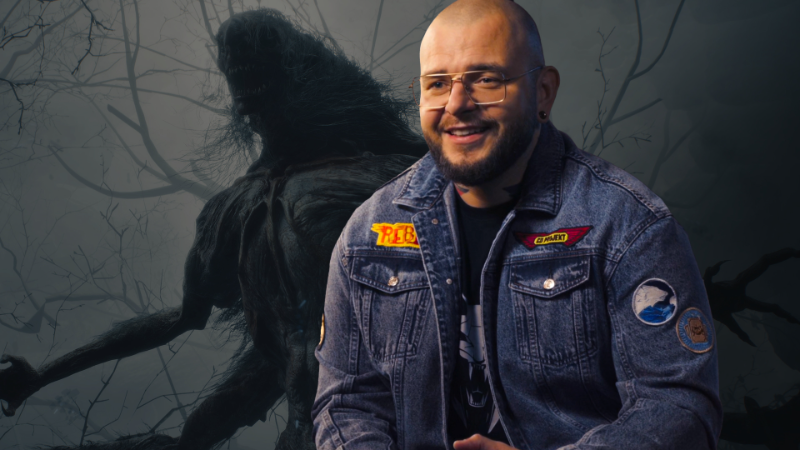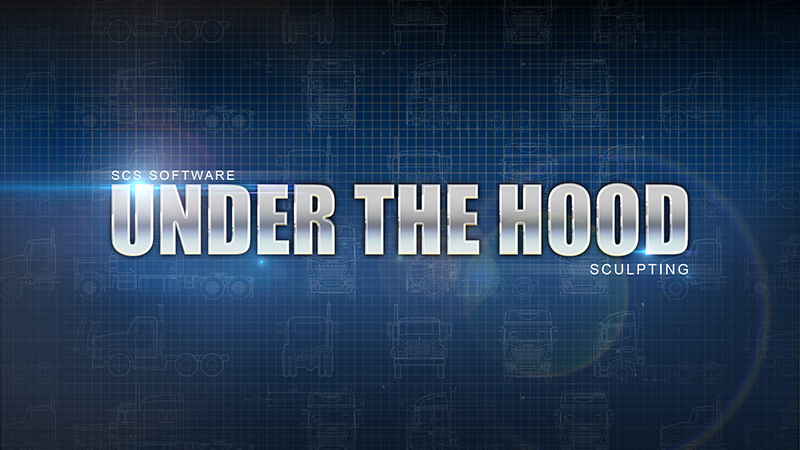In order to understand media, we need to look at it from as many angles as possible, scrutinizing every detail to pull the whatever meaning we can from the muck, even if that meaning is just a bunch of 80s pop culture references with a Moby Dick allusion or two thrown in for good measure. But with Kojima Productions’ trailer for its new project Death Stranding, none of the meaning is sticking out of the muck. It’s just muck as far as the eye can see.
Kojima is known for his recurring surface-level symbolism and drawing from pop culture in big, obvious ways—Solid Snake is essentially a carbon copy of Snake Plissken from John Carpenter’s Escape from New York—which is why the trailer for Death Stranding is surprising. Not much about it is obvious. No worries though, we’re going to put on our muckin’ gloves and go on a muckin’ adventure with naked cyborg daddy Norman Reedus and his no-longer-alive marine friends. Let’s try to figure this one out.
Poetry in ocean

I thought that after I stopped teaching high school, I’d be leaving William Blake behind, but Kojima had to roll in with Reedus and Co. and ruin it for everyone. The trailer opens with an excerpt from Blake’s Auguries of Innocence, specifically the first four lines. So why open up this sad, saltly scene with Blake’s poem? God only knows, but let’s try and find out.
An augury is an omen, and innocence—since we’ve all lost ours, surely—is a state of being free of corruption. It sounds like a nice enough title, but if someone is sending portents of purity, then the state of the world for the speaker might not be so great. As we’ll see soon enough, Naked Normy’s life and the world he’s living in aren’t looking so hot.
But first, let’s figure out what framework for the trailer these lines are trying to build. If they’re presented up front, they’re meant to set mood and theme.
To see a World in a Grain of Sand
And a Heaven in a Wild Flower
Hold Infinity in the palm of your hand
And Eternity in an hour
This passage is basically telling the reader to look closer at the world around them, to study it in detail, and see the world for what it truly is. We’re to see, if we look hard enough, an endless supply of meaning and revelation hidden in the natural world all around us. Man doesn’t exist at the center of this way of thinking, so it’s a bit destabilizing, but empathy doesn’t come without a little pain.
So in the context of a bonkers Hideo Kojima trailer, on the surface, the poem preps us to think in terms of empathy and micro detail, to find revelation outside ourselves.

No liberal arts school could have ever prepared me for this.
The oil-soaked beach is evocative of any number of big oil spills, the Deepwater Horizon spill of 2010 probably comes to mind for most. The damage it caused (and is still causing) the marine life in the Gulf of Mexico refocused global attempts to research alternative energy solutions and encouraged a ‘greener’ lifestyle for many. If I know my Kojima, it’s also meant to reinforce the idea of corporations as money-grubbing mechanical entities with a complete disregard for the greater good.
In keeping with the themes established by Auguries of Innocence, we’re asked to “see a World in a Grain of Sand” of which there are many on this beach, all tainted by oil. Following that theme upwards, the crabs, fish, and whales—all dead—are also tainted, their innocence violated. Innumerable worlds destroyed by a viscous black goo. We’re meant to have empathy for every world, and their loss is an absolute devastation, reflected in Norm’s confused happy-angry-sad reaction to the whole situation. Dude’s enlightened.
We’ll get to the baby soon.

Auguries of Innocence goes on to detail how man directly causes the suffering of animals and nature, and how ignoring that suffering might be the downfall of man. It also implies that enlightenment, or at least the basic form of empathy required to perceive the suffering of mice and men is its own burden. Imagine suddenly becoming aware of every ounce of pain in the world.
The cuffs on Norm’s arm attached to no one say that he’s escaped from somewhere, that he’s no longer a prisoner of whatever society exists in this shitty near-future sci-fi scenario. He’s not only free physically, but mentally—no longer bound to his old society’s way of thinking, free to bear witness to the damage people have done to the world. Emotional overload, for sure.
He gains consciousness and checks out his surroundings. He sees a baby, still alive, the dead sea creatures surrounding him, and holds the baby to himself, sobbing deeply. It’s hard to say exactly what kind of cry Norm is having—I see hints of relief, sorrow, and joy. It’s a super cry.
Gone baby gone

The invisible handprints in the sand (not the baby’s) are a tough call. I don’t get the impression whatever is making them is a good thing. Not being able to assess a potential threat makes it stay a potential threat, and the way the invisible figure creeps up to his body implies it’s keeping watch.
Norm may have been complicit in whatever led to the current mega-oily, whale-deficient state of the world.
After Norm detaches the baby from his belly and has a good cry, his hands turn black, which is a similar image to the prints in the sand left by the invisible presence. Because his hands turn black, I feel like he’s somehow tied to the presence. Symbolically, it’s like he’s acknowledging the corruption in himself, and his position next to all the dead sea creatures is a distinct reminder of his previous sins. Norm may have been a bad man at some point, complicit in whatever led to the current mega-oily, whale-deficient state of the world.
Then his baby turns invisible, and leaves oily hand prints on Norm’s thigh. Was it taken by some supernatural presence? An infant is innocent as innocent gets, so because it goes ghost mode and leaves oily hand prints, are we to see it as the loss of innocence? If so, who’s to blame? I blame Metal Gear. But really, I actually blame those flying figures that appear later. They give me a bad vibe.

Seeing that Reedus rips off a cord connecting him to the baby and that he has abdominal scars imply something was cut out from him, I’d wager that baby is his. If the baby didn’t come from Norm’s belly, then something was taken from Norm. Did he cut it out himself or was it an involuntary operation?

This necklace is reminiscent of a chain of dog tags, which may be an allusion to literal dog tags, implying that Normy here was cooped up and treated like one, or military dog tags. The handprints all over his body certainly give the impression that he’s an object or tool to some folks somewhere (the sky people, probably) and that even though he may have given birth to his cyborg-now-oil-ghost baby, it probably wasn’t his choice. Maybe he’s part of an initiative to replicate soldiers using previously replicated soldiers as vessels for the babes. It’s familiar territory for Kojima, so I wouldn’t be surprised if he chopped, screwed, and remixed some old tropes for a modern age.

Possible inspiration?

Thing That Drifted Ashore is chapter 2 from volume 7 of the Horror World of Junji Ito.
This shot ties everything together. Norm stands on the oily beach naked and super vulnerable, washed up just like all the marine corpses surrounding him. In the distance, in perfect formation, are five ominous figures. Their position above the rest of the scene sets up a power relationship: the scary distant figures obviously have the upperhand (supernatural flying powers and they’re obscured, too far away to properly assess). Meanwhile, Normy’s butt is flying its flag for all the dead fish. He probably just escaped from those folks, and his wide stature suggests he’s about to give ‘em all he’s got.
We see the beached whales for the first time here, which makes it a good time to explain what the pretty bad title “Death Stranding” is a reference to. Cetacean stranding is when cetaceans (a group of marine organisms including whales, dolphins, and the like) beach themselves. There are a few theories as to why this happens, but the most Kojima-esque of them is manmade sonar interference. Sonar used to detect submarines (low frequency active sonar) is often blamed since it produced the “loudest sound ever put into seas.” Since cetaceans use sonar for navigation, it may have scrambled their own signals, effectively leaving them in the dark, leading to mass strandings. Whales, if left to rot, have been known to explode due to gaseous buildup in their massive bodies. The image Kojima and co. are setting up here is anything but pretty and works with the themes of man turning a blind eye to nature.
It’s pretty safe to say that Death Stranding is going to deal with environmental themes, and might tackle wealth and power distribution—it’s likely that only those in a position of great power could make such a mess. And after an entire series dedicated to anti-war criticism, it would make sense for Kojima to move onto new, equally pressing subject matter. As for how it plays? No clue. Maybe in the final game we’ll be teaming up with the whales, not killing them. Imagine: Hideo Kojima’s Aquaman.
On a closing note, let’s take a quick peek at that catchy tune used in the trailer.
The “keep coming” line feels like a tongue-in-cheek nod from Kojima that, like the waves, he’ll keep coming back to make the bonkers nonsense we love.


